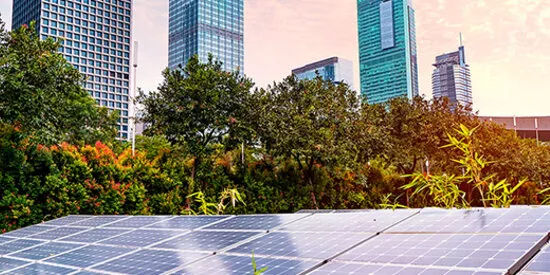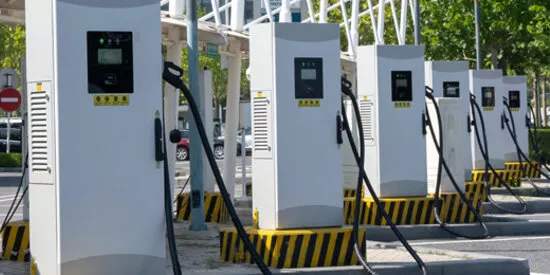
Accelerating the uptake of distributed solar energy systems in New Zealand
State-owned New Zealand Green Investment Finance (NZGIF) has reached a major milestone in its support for the country’s energy transition with an innovative solar finance debt programme.
Distributed solar installations are fast becoming a key component of New Zealand’s energy transition. The number of grid-connected solar systems at homes, schools, farms and businesses across the country has ballooned from about 1,400 in August 2013 to more than 50,000 in August 2023.1
Accelerating that growth—and hastening progress towards New Zealand’s target towards net zero carbon emissions by 2050—requires the merging of government-led initiatives and private capital. A new solar finance programme aims to do so by bringing together NZGIF and private investors. Facilitated by Societe Generale, the NZGIF Solar Finance programme’s initial NZ$170 million (€95 million) capital raise will be used to provide long-term finance to install and operate distributed solar systems.
The programme’s first cornerstone partner is Auckland-headquartered solarZero, a leading provider of rooftop solar and smart battery solutions, which currently powers over 12,000 homes across New Zealand with grid-connected clean energy systems. The company reports this has helped deliver 131.6 GWh (Gigawatt hours) of solar energy, preventing over 16,100 tonnes of carbon dioxide from entering the atmosphere since its inception in 2008.2
Long-term financing is especially valuable to solarZero because the company provides its solutions to customers by improving access to solar energy and assuming the upfront costs that are often the biggest obstacle for households.
This arrangement, where a company installs a solar system on a customer’s property at little or no cost, then sells the power generated to the host customer at a fixed rate that is typically lower than the local electricity provider’s rate, is known as a solar power purchase agreement (PPA).
The NZGIF Solar Finance programme allows companies like solarZero to use these residential solar PPAs to access long-term financing, freeing up capital for further expansion. The programme will be extended to other rooftop solar providers, in turn allowing them to offer more attractive solutions to their customers and supporting the ongoing transformation of New Zealand’s energy landscape.
Long-term debt financing is key
Access to long-term debt financing has been a major hurdle to the expansion of solar generation systems in New Zealand. “Replacing short-term floating-rate debt with longer term fixed-rate options will allow New Zealand solar providers to accelerate solar energy access to New Zealanders,” said NZGIF Chief Investment Officer Jason Patrick.3
“It’s especially meaningful as it provides greater financing certainty and improved operational cash flow which will allow us to accelerate the roll-out of residential solar and battery solutions across the country," said solarZero CEO Matt Ward.4
It will also enable solarZero to further develop its ‘virtual power plant’ (VPP) network, which harnesses surplus energy from hundreds of community-based grid-connected solar systems, stores it using a centralised battery system, then distributes it to customers during peak consumption times to ensure the reliability of supply and avoid disruptions.5
By providing power system stability and demand flexibility, VPP technology is seen as a critical ingredient in achieving New Zealand’s aspirational target of deriving 100% of its energy needs from renewable sources by 2030.
Merging government-led initiatives and private capital
The NZ$170 million debt package was funded through NZGIF’s investment of NZ$80 million along with a NZ$90 million private debt placement to international investors First Sentier Investors and Natixis Investment Managers that has been certified by the Climate Bonds Initiative.
This is the first issuance by a New Zealand-based financial institution to secure Climate Bonds Initiative certification. The certification is awarded following a rigorous science-based assessment, providing confidence that the proceeds genuinely contribute to addressing climate change.
Societe Generale’s product knowledge and client-centric approach contributed to the successful outcome. Societe Generale acted as arranger and green coordinator on the NZ$90 million private debt issuance, bringing international investors to the financing, assisting NZGIF to develop its corporate green financing framework and aligning the issuance with the Climate Bonds Initiative’s standards.
"We expect that enhanced access to long tenor debt finance will facilitate larger scale expansion of consumer rooftop solar in New Zealand. The NZGIF Solar Finance programme will provide developers across New Zealand with capital to fulfil their growth ambitions,” said Arkady Lippa, Co-head of Asset Backed Products for Asia Pacific at Societe Generale.
"Contributing to this landmark project showcases Societe Generale’s longstanding commitment to supporting energy transition. We believe that NZGIF's programme is an excellent platform for connecting global capital with distributed solar generation to accelerate the shift to renewable energy in New Zealand."
Going forward, this model will provide a repeatable financing solution for solar energy in New Zealand.
1. https://www.emi.ea.govt.nz/Retail/Reports/GUEHMT?_si=v
2. https://www.solarcity.co.nz/our-story
3. https://nzgif.co.nz/news-and-events/nzgif-raises-international-capital-to-support-solar-energy/
4. https://nzgif.co.nz/news-and-events/nzgif-raises-international-capital-to-support-solar-energy/
5. https://www.powerco.co.nz/news/media/solarzero-to-supply-coromandel-network-support-to-powerco-using-virtual-power-plant-technology




